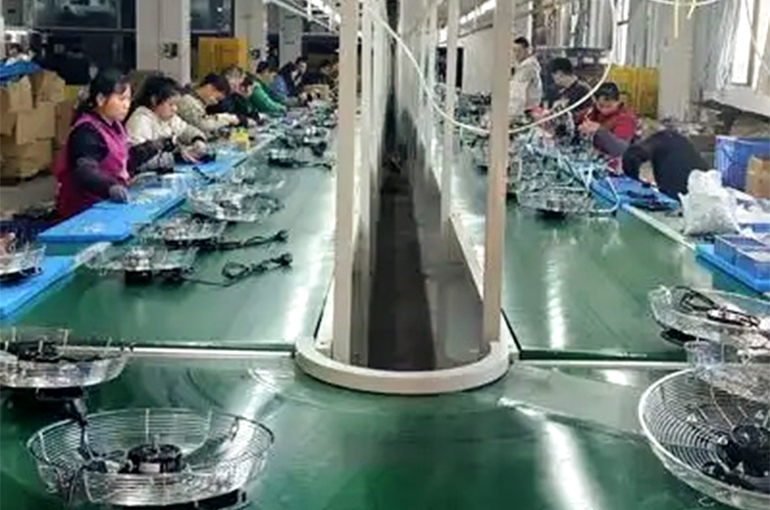 China's Small Home Appliance Makers Brace for US Tariff Hikes
China's Small Home Appliance Makers Brace for US Tariff Hikes(Yicai) Jan. 17 -- China's small home appliance manufacturers are working overtime, establishing overseas factories, and actively developing new products and customer relationships to prepare for potential changes in the global trade environment as Donald Trump takes office as the president of the United States.
Li Mingyang, general manager of Luckyway Home Appliances, a supplier of electric fans and heaters, told Yicai that American customers began pressing for early delivery two months ago, prompting the company to work overtime since last November, including weekends. Additionally, there is a shortage of shipping containers bound for the US due to high demand.
Since November, Luckyway's American orders have increased by 20 percent year-over-year, with all orders required to arrive before the new president's inauguration on Jan. 20.
The head of a small home appliance company in Shunde, Guangdong province, told Yicai that overseas customers began urging delivery the day after the US election last November, with orders in the last two months of last year increasing by 30 to 40 percent compared to the previous year.
New Production Abroad
In addition to rushing to complete existing orders, Chinese home appliance suppliers have accelerated their expansion of overseas factories.
Welly Electrical Appliances, a supplier of washing machines and ovens, opened its first factory in Thailand on Jan. 12. The plant, which currently focuses on refrigeration products, is expected to expand its production to include washing machines, car refrigerators, and smart bidet seats. Liu Liang, president of Welly, told Yicai that the company plans to use this experience to establish factories in North and South America.
Unlike most of his peers, however, Li from Luckyway is still cautious about production outside China, he said that during his visits to Vietnam and Malaysia last month, he discovered unattractive production costs. Building and operating a factory in Malaysia would cost Luckyway 10 percent more than in China, while China's costs are 8 percent lower than Vietnam's. Before any potential tariff increases, Luckyway will maintain production in China, as the local industry remains the most competitive so far, Li added.
Yu Xuehui, founder of the Cixi Home Appliance Venue, an industrial platform in Cixi, often called China's "capital of small household appliances," noted that as the risk of increased import tariffs in developed countries rises, the export market for small home appliances is becoming more diversified. Orders from the ten ASEAN countries, Central Asia, the Middle East, and Africa have been increasing, filling the market share previously held by developed countries, per Yu.
Most leading export companies have established factories in Vietnam, Thailand, Indonesia, and other overseas locations, Yu said. While some companies are concerned about declining product competitiveness, others remain optimistic, believing that developing new products and finding new customers can compensate for any market share lost by existing products, he concluded.
Editors: Tang Shihua, Emmi Laine